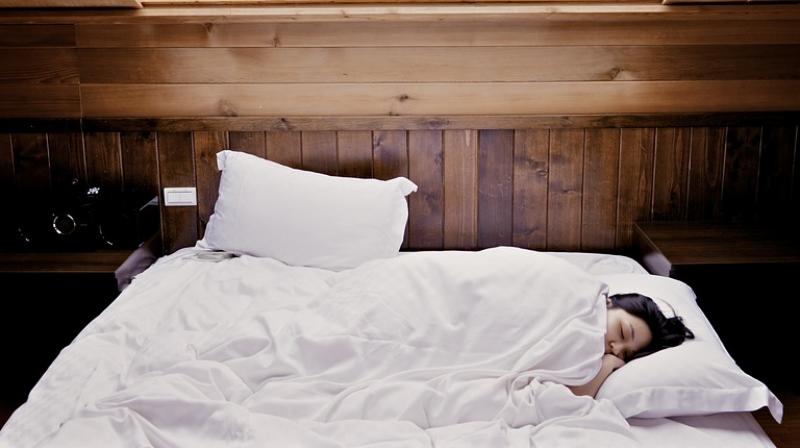Disrupted sleep cycles linked with mood disorders
Research found people with circadian rhythm out of step can have increased risk of emotional, behavioural and psychological problems

People who have disrupted sleep cycles or less variation in their activity levels around the clock may be more likely to have depression, bipolar disorders and other mental health issues, a UK study suggests.
Past research has found that people with a circadian rhythm, or biological clock, that’s out of step with their daily routines - like split shift or night shift workers - can have an increased risk of emotional, behavioral and psychological problems.
The current study examined 24-hour activity levels for 91,015 participants who agreed to wear accelerometers on their wrists for one week in 2013-2014 and completed mental health surveys a few years later.
Researchers focused on so-called relative amplitude, or how much people’s activity levels varied between their busiest and most restful portions of a 24-hour cycle. They scored circadian amplitude from zero to 1, with higher values reflecting a clearer distinction between the least and most active parts of the day and lower values indicating too little daytime activity, too much nighttime activity, or both.
On average, participants had a relative amplitude level of 0.87, which is similar to what would be expected in a healthy population, the study found.
When researchers sorted participants into five groups, or quintiles, based on the amplitude results, they found that each one-quintile reduction in relative amplitude was associated with 6 percent higher lifetime risk of major depressive disorder, an 11 percent greater risk of bipolar disorder and 2 percent higher likelihood of mood instability.
“Regulating circadian rhythms is an important part of maintaining optimal mood and cognitive functioning,” said Dr. Raymond Lam, a psychiatry researcher at the University of British Columbia in Vancouver, Canada, who wasn’t involved in the study.
“That includes having a regular sleep schedule (sleeping and waking at about the same times), keeping active and exercising (which helps to regulate rhythms), avoiding late night light exposure (such as from mobile devices), and avoiding or addressing the circadian disruptions from shift work,” Lam said by email.
One limitation of the study, however, is that it measured activity levels at one point in time and mental health conditions were assessed at a different time. It also wasn’t a controlled experiment designed to prove whether or how variation in sleep cycles or activity might directly cause psychological problems - or the reverse.
This makes it unclear which might have come first - the disrupted circadian rhythm or the mood disorder, said Dr. Aiden Doherty, author of an accompanying commentary and a researcher at the University of Oxford in the UK.
“More research is needed to understand the long-term consequences of circadian disruption,” Doherty said by email. “Therefore current public health guidelines on physical activity (150 minutes per week of moderate intensity exercise) and sleep (7 to 9 hours per night) should still be followed.”
In addition to mood disorders, the study also linked lower relative amplitude levels to lower subjective ratings of happiness and health satisfaction, as well as higher odds of reporting loneliness and slower reaction times.
These results suggest that measuring relative amplitude might be an affordable and simple way to help predict which people are at greater risk for developing serious mental health problems like depression and bipolar disorder, lead study author Laura Lyall of the University of Glasgow, and colleagues, write in The Lancet Psychiatry.
Even though the study doesn’t show whether sleep problems cause mood disorders or whether mental health issues lead to sleep difficulties, the results still suggest people may feel better when they try to keep their routines in sync with their circadian rhythm, said Dr. Teodor Postolache, a psychiatry researcher at the University of Maryland School of Medicine in Baltimore who wasn’t involved in the study.
For starters, people should make sleep as restful as possible, activity as vigorous as possible, and align their schedules with daylight and evening hours as much as possible, Postolache said by email.
“Light, noise control, physical activity, environmental temperature, stress mitigation, relaxation, yoga and maintaining durations and schedules for sleep-wake cycles are all important when possible,” Postolache said.

